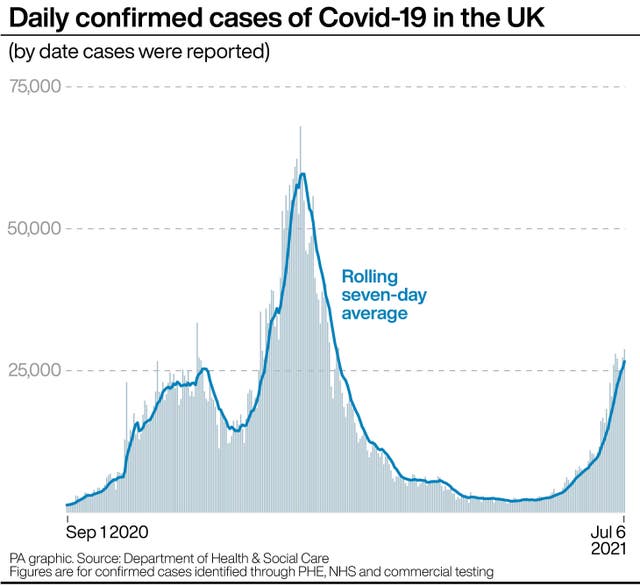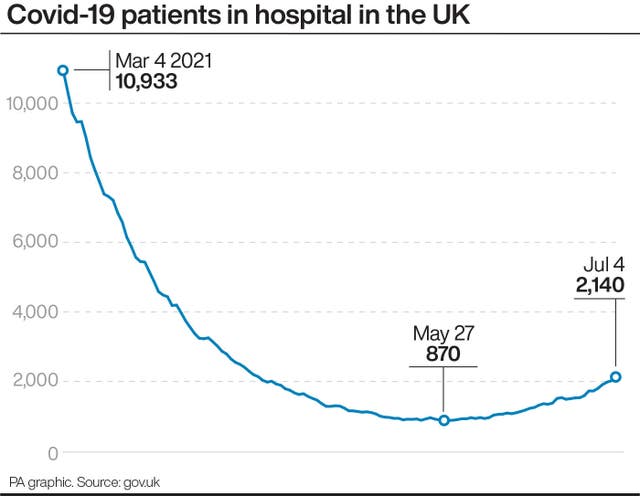Whitty warns long Covid will increase, particularly among the young
Mr Whitty warned that young people will be hit hard by the collection of syndromes after Boris Johnson announced plans to end restrictions in England.

Professor Chris Whitty urged the nation to “push hell for leather” to reduce coronavirus infection rates and roll out the vaccines to prevent a significant increase in long Covid.
England’s chief medical officer warned on Tuesday that young people will be particularly hit by the collection of syndromes after Boris Johnson announced his plans to end nearly all restrictions in England.
Prof Whitty also said he would be “surprised” if there was a return to a pre-pandemic normality before spring, as he predicted a “difficult winter”.

One of the key experts in the coronavirus response, Prof Whitty said he expects people who contract the Delta variant to be affected by long Covid at similar rates to previous strains.
But he said soaring case rates will mean more unvaccinated people will be struck by the disorder, defined as symptoms persisting for more than four weeks.
“Since there’s a lot of Covid at the moment and the rates are going up, I regret to say I think we will get a significant amount more long Covid particularly in the younger ages where the vaccination rates are currently much lower,” he said during a health discussion at the Local Government Association’s annual conference.”
“Fundamentally the two ways to prevent long Covid in my view are to keep Covid rates right down and make sure everyone is vaccinated so they get very mild disease and I think we really just need to push hell for leather for those two.
“The deaths from Covid I think are mercifully going to be much lower in this wave compared to the previous ones as a proportion of cases but long Covid remains, I think, a worry.”

Recent figures from the Office for National Statistics suggested 385,000 people in the UK had experienced long Covid lasting for at least a year.
The estimates said 962,000 people experienced long Covid in the four weeks to June 6.
Fatigue was the most common symptom, followed by shortness of breath, muscle aches and difficulty concentrating.
Prof Whitty added to his earlier warnings that the NHS is going to have a “difficult” winter as it deals with a resurgence of coronavirus combined with seasonal respiratory infections.
“It’s going to take quite a long time to get back to a normality and I certainly would be surprised if we got back to what most of us would see as a status quo before the pandemic before the next spring,” he told the conference.
“Because I think we’ve got this current wave, hopefully there’ll be a period of quieter Covid after that, and then the likelihood is there will be quite a difficult winter, especially for the NHS, and then by next spring I’m hoping slightly more into a predictable pattern.”





